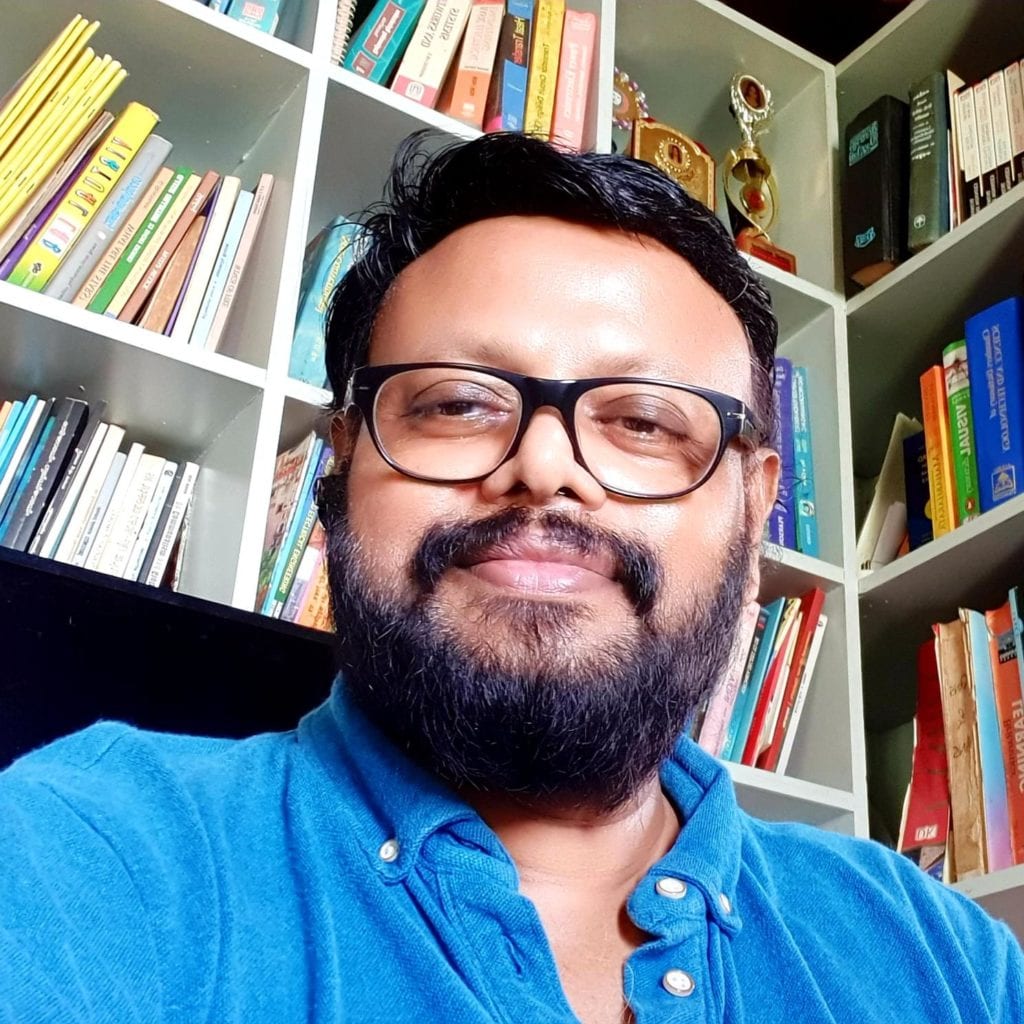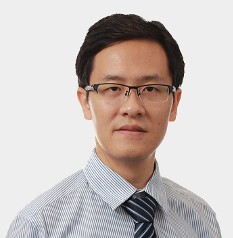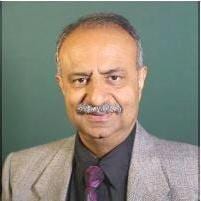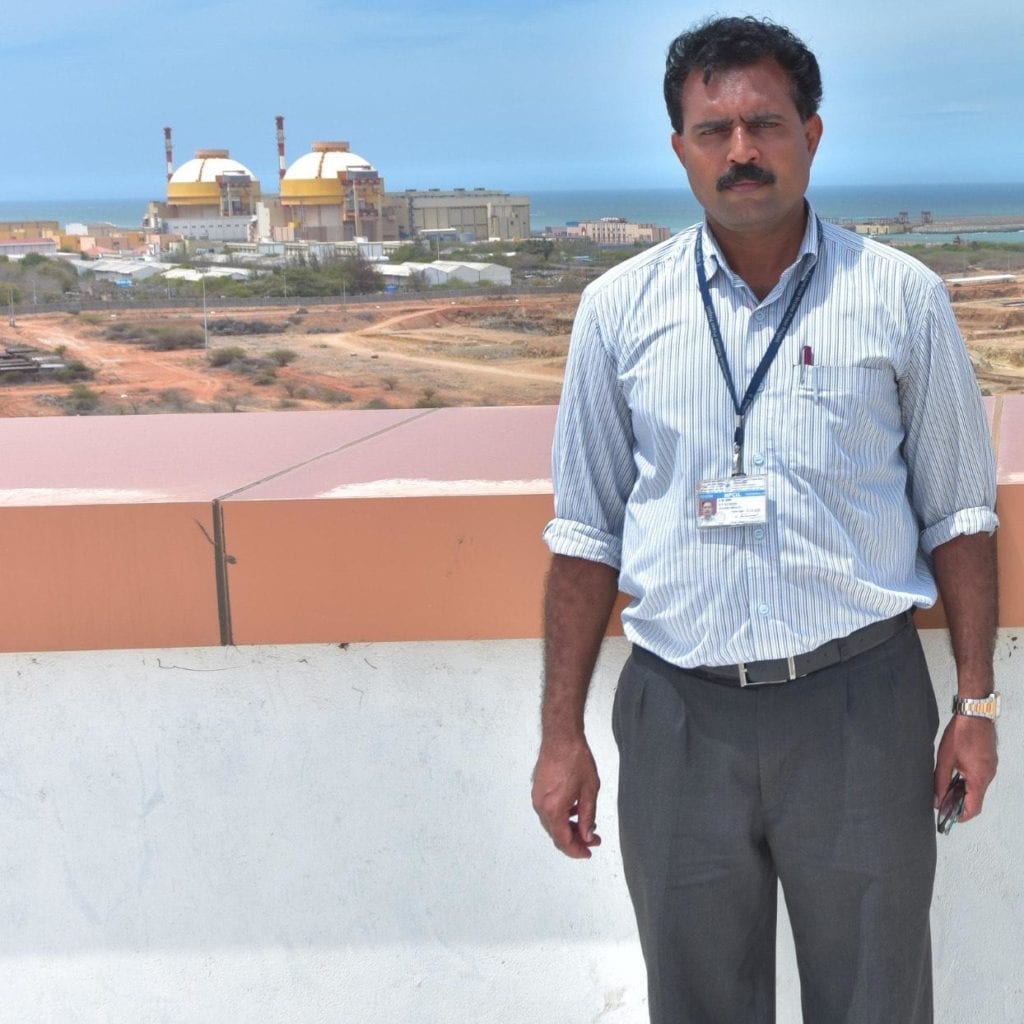How will the electric distribution grid manage the adoption of electric vehicles? This talk will review how the electric distribution grid will manage the growing adoption of EVs. It will discuss the early concerns by electric utilities and automotive manufactures and how they have adapted since the early plug-in electric vehicles arrived over 10 years ago and what the challenges are today and in the near future. It is not only the large rollout of light duty EVs that are being introduced but also the great challenge of how electric utilities will manage the multi-MW charging by EV fleet vehicle owners. There will also be a discussion on how various standards bodies are helping to ensure that EVs can become a friendly grid load and a resource asset.
Hawk is active in IEEE Power and Energy Society standards development work. He is one of the working groups lead developing the 1547.9 Guideline on interconnecting energy storage to the electric power system and participating in several IEEE 2030 standards development related to the management of electric vehicle interaction to the electric power system. Hawk has also been participating in Society of Automotive Engineers (SAE) standards work updating SAE standards for V2G functionality and is a member of the IEEE SCC21 Standards Coordinating Committee.
Hawk retired after a 37-year career at DTE Energy as the Manager of Power Systems Technologies. In that position, he was responsible for deploying Distributed Energy Resources (DER) into the T&D planning and operating process, managing all DER interconnections and grants related to plug-in electric vehicles, energy storage and the effect of distributed resources interconnecting to the electric grid. Hawk was also instrumental in demonstrating and implementing a low cost smart grid sensor into the distribution system using a Distributed Energy Distribution Management system (DERMS) to supplement traditional SCADA systems. Upon his retirement, his group had deployed enough sensors to provide 100% monitoring coverage of the electric distribution system.
Hawk is a graduate of The University of Michigan with a Master’s in Engineering with a focus in Electric Power Engineering

This presentation will provide an overview of the importance of Solar Resource Assessment and Monitoring in the feasibility study and in the performance of Solar PV projects, along with a case study of a Solar Radiation Resource Assessment (SRRA) station in Southern India. Simulation models and meteorological forecasting resources for specific PV plants are the well proven technologies which are currently in use. In this context, data collection and monitoring represent a valuable opportunity to improve PV plant performance and yield forecasting. The improvements in communication procedures between devices would contribute to improving daily and intraday forecasting, calculation of performance expectations, and the exchange with the energy grid. Solar Resource Monitoring is also important for monitoring the performance of Microgrids in remote areas which can help the unprivileged and vulnerable communities. The traditional and advanced data monitoring techniques like IoT, Big Data Analytics etc. are also discussed in this presentation.

Mr. Ajith Gopi is currently heading Technical Consultancy in Solar PV Projects and Wind Energy Programme at ANERT, the State Nodal Agency for Renewable Energy under the Power Department of Govt. of Kerala. Mr. Ajith has got more than 30 years of experience in Renewable Energy field. Under his leadership, ANERT has commissioned a 2MW Solar Photovoltaic Power Plant Project at Kuzhalmannam, Palakkad, which is the first Solar IPP Project in the State of Kerala. As part of this group he has Solar Consultancy experience of several MW projects including a 25MW Solar Power Plant project at Gujarat Solar Park and International projects in China and Portugal. His contributions through the Remote Solar Village Electrification Project brought light to thousands of remote tribal families in Kerala. He had worked as a leading Techno-Management team member that had launched the Indian operations of SunTechnics, the PV Integrator Company under the CONERGY Group, Germany. He holds an M-Tech from College of Engineering, Trivandrum, an M.B.A from Indira Gandhi National Open University and an International Diploma in Wind Power Development from LIFE Academy, Sweden. Ajith Gopi is a Senior Member of IEEE, and currently Vice Chair of IEEE-Power and Energy Society, Kerala Chapter.
The air free-cooling has been long thought infeasible in tropics due to the unique challenges of year-round high ambient temperature and relative humidity. In recent years, the increasing availability of servers that can tolerate higher temperatures and relative humidity levels sheds light upon the feasibility of the air free-cooling to enhance the data center energy efficiency. However, building an air free-cooled data center in the tropics requires extensive experiments to understand the details of how the realistic tropical environment conditions will affect data center power consumption, computing throughput, and server hardware reliability. This presentation will talk about the key observations, experiences and learned lessons from the experiment that was conducted. The experiments show that (1) the air free-cooling design that uses fans only can reduce the power usage effectiveness (PUE) by 38%, compared to the global average PUE, (2) the tropics’ year-round high temperatures up to 37 degree Celsius do not impede the air free-cooling, and (3) the implementation of the air free-cooled data centers in tropics requires special cares to deal with airborne contaminants to avoid fast corrosion rate and dust-induced server faults. Presentation will also highlight the energy resilience of Singapore and its carbon footprint..
Rui Tan is currently an Associate Professor at School of Computer Science and Engineering, Nanyang Technological University (NTU). He joined NTU in 2016 as an Assistant Professor. Before that, he was a Senior Research Scientist at Advanced Digital Sciences Center, a Singapore-based research center of University of Illinois at Urbana-Champaign, and a postdoctoral Research Associate at Michigan State University. He received a PhD degree from City University of Hong Kong. His research interests include sensor networks, Internet of things, and cyber-physical systems. He is the recipient of IPSN’17 and CPSR-SG’17 Best Paper Awards, IPSN’14 and PerCom’13 Best Paper Award Runner-Ups, and CityU Outstanding Academic Performance Award. He is a Senior Member of the IEEE.

Supercomputing has come a long way from simple weather forecasting to advanced predictions about many phenomena, such as ocean, atmospheric, land, high altitude and critical land-water-air ecosystems. A lot of this became possible thru giant strides in computer calculation power, connection capability as well as improved scientific models and extensive simulation supporting software. In this talk we will learn a little bit about how, when all this is combined with ever growing data plus expert domain knowledge, it can be employed to better explore and design clean energy solutions and its potential impact on our society.
Sharan Kalwani is an industry technology specialist with 25+ years of experience. Sharan has degrees in both Engineering and Computer Science and has worked in many diverse areas. He is a senior member of IEEE-Computer Society, IEEE-Education Society & IEEE-Vehicle Tech Society, an Emeritus member of Michigan!UNIX/user group, Association for Computing Machinery (ACM) and also leads the SIG-Linux section of SEMCO. He enjoys teaching, holds an adjunct position at several universities. He has published a book on “Linux and Internet Security” and is now working on his second about a new computer programming language. He is also the recipient of the IEEE MGA Achievement award for his contributions to IEEE activities in 2018.

Nuclear energy arises from and holds together the binding energy that is accumulated in the
centre of an atom. Nuclear power refers to the use of nuclear reactions that trigger nuclear
energy to produce heat, which is then used most commonly in steam turbines to generate
electricity in a nuclear power plant.
Electricity from nuclear power plants has a vital role to play in India’s energy mix and future
development. Nuclear power also has inextricably got linked to the broader issue of climate
change. Nuclear power has now been strongly linked to the larger topic of climate change.The
passive safety relies on natural factors such as pressure differentials, gravity or natural
convection to ensure protection during emergency situations. This includes the fast injection of
high pressure boron and the provision of extra tanks for long term supply of borated water to the
reactor in a passive way. The reactor building has a series of passive hydrogen recombiners to
convert abnormal production of hydrogen into water.
The presentation will also provide an overview about Nuclear Energy, its application & future
scope. We will also be discussing various reactors used in Kudankulam Nuclear Power Plant.

Mr. A.V. Sathish being the Scientific Officer in Kudankulam Nuclear Power Plant became the part of Nuclear Power Corporation of India Ltd (NPCIL) in 1992 after one year training at Bhabha Atomic Research Centre (BARC). He has pursued his MBA from IIM Calcutta. He has 25 years of experience in various nuclear power reactors like Boiling Water Reactor (BWR), Pressurized Heavy Water Reactors (PHWR) and Pressurized water reactors (PWR). He was associated with the Quality Circle activities of NPCIL and presented various projects in Quality Circle national conferences. As a faculty in public awareness programme, he was involved in interaction with professionals, students and public regarding various innovative ideas such as requirement of hybrid energy resource for India’s sustainable growth, choices for India’s future energy security, need for nuclear energy along with safety features of nuclear power plant, radiation and environment etc. He has participated in several seminars, workshops and symposiums organised by academic institutions as well as scientific and research organizations. He owned around 20 scientific publications to his credit.
IEEE websites place cookies on your device to give you the best user experience. By using our websites, you agree to the placement of these cookies. To learn more, read our Privacy Policy.